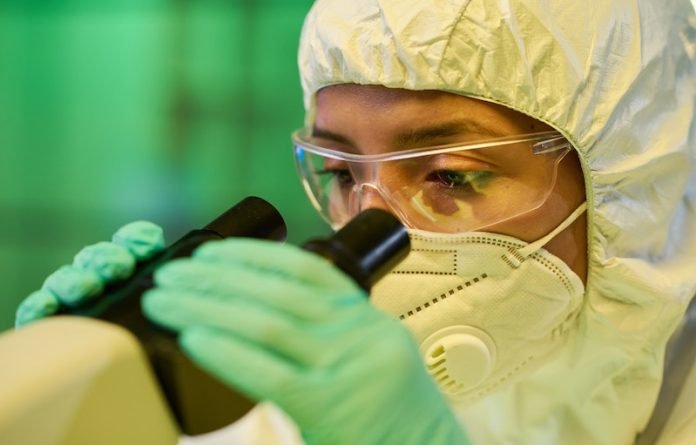
From the first months of the COVID-19 pandemic, scientists found that men are more susceptible to severe infections of the SARS-CoV-2 virus, with increased death rates.
In a study from the Hackensack Meridian Center for Discovery and Innovation, scientists found why COVID-19 kills more men than women.
They examined infectious diseases relating to fat in the body, including COVID-19.
The team found males fare worse than females with the disease because the virus more readily attacks females’ fat tissue, in lieu of lung tissue.
The data suggested that in female mice body fat may act as a sink/reservoir for SARS-CoV-2 and thus spares the lungs from a greater viral load, preventing pulmonary damage due to infiltrated immune cells and activated pro-inflammatory cytokines.
The mouse models in the study, mimicking the human immune system, showed that females lost more fat compared to males when infected with COVID-19.
The male mice had more virus in their lungs, while the females showed more virus in their fat tissue. The theory is that the adipose (fat) tissue in females may act as a “sink” or “reservoir” of the virus.
The study followed previous research showing the virus infiltrated the lungs of males much more readily than it did in females.
The current study goes a bit further, showing that an inverse relationship exists between the viral loads in the lungs and fat and it differs between males and females.
The team found that COVID-19 infection alters immune signaling and cell death signaling differently in SARS-CoV-2-infected male and female mice.
These findings may help explain the higher COVID-19 susceptibility in males compared to females.
If you care about COVID, please read studies about 8 pressing questions about long COVID-19, and low-sodium plant-based diets may prevent COVID-19 better.
For more information about COVID, please see recent studies about new evidence on rare blood clots after COVID-19 vaccination, and results showing zinc could help reduce COVID-19 infection risk.
The study was conducted by Jyothi Nagajyothi et al and published in the International Journal of Molecular Sciences.
Copyright © 2023 Knowridge Science Report. All rights reserved.



